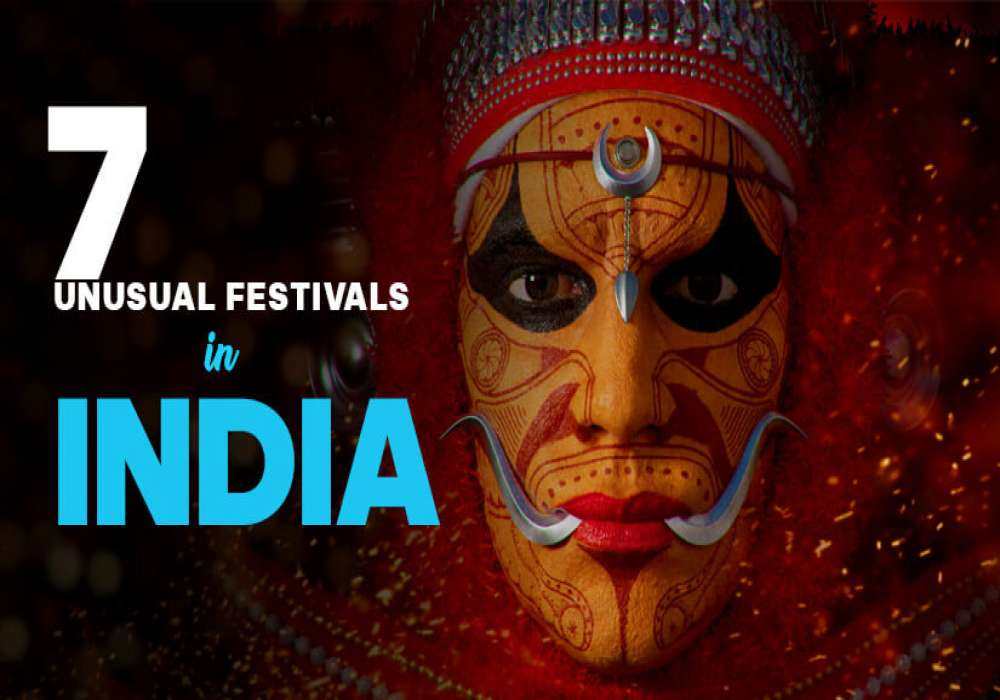
Last Updated At: 26-Aug-2025
13 Best Interesting Facts About Hungary : A Journey Through Fascinating Facts
When one thinks of Hungary, images of stunning architecture, mouthwatering cuisine, and a rich cultural heritage may come to mind. However, this Central European nation is much more than its picturesque landscapes and delicious goulash. Hungary is a land of fascinating history, unique Hungarian traditions, and surprising facts, making it a captivating destination. In this blog post, we'll delve deep into Hungary and uncover some fascinating facts about Hungary that will leave you eager to explore this remarkable country.
List Of 13 Famous Must-Know Interesting Facts About Hungary
Nestled in the heart of Europe, Hungary boasts an enigmatic charm that beckons travellers with its unique blend of history, culture, and natural beauty. As you embark on a journey through this captivating country, here are 13 interesting facts about Hungary that will undoubtedly pique your curiosity and add a touch of magic to your Hungarian adventure.
- A Language Like No Other
- Rich Thermal Spa Culture
- Famous for Lake Balaton
- The Hungarian Alphabet Comprises 44 Letters
- The Hungarian Invention of the Ballpoint Pen
- A Love for Water Polo
- A Culinary Delight: Paprika
- Hungary's Love for the Palinka
- Hungary Scores More Gold Medals
- The Tradition of Folk Dance
- The Home of Nobel Laureates
- The Rubik’s Cube Connection
- Home to the Largest Synagogue in Europe
1. A Language Like No Other
Hungarian, the official language of Hungary, is a linguistic anomaly. Hungarian belongs to the Finno-Ugric language group, making it more closely related to Finnish and Estonian than its European neighbours. This linguistic uniqueness can make learning Hungarian challenging for foreigners but also adds to the country's distinct identity.
2. Rich Thermal Spa Culture
Hungary is renowned for its thermal spa culture, boasting over 1,000 thermal springs. Budapest, the capital, is often called the "City of Spas" with world-famous establishments like the Szechenyi Thermal Bath. These baths, some dating back to the Roman era, offer a unique relaxation experience thanks to the therapeutic qualities of the mineral-rich thermal waters.
3. Famous for Lake Balaton
Lake Balaton is the largest freshwater lake in the region. Its crystal-clear waters, stretching for about 50 miles, offer a serene escape for locals and tourists. Encircled by charming towns and vineyard-clad hillsides, Lake Balaton is a haven for water sports enthusiasts, sunseekers, and wine lovers alike. Its rich cultural history and stunning natural scenery make Lake Balaton a beloved destination that encapsulates the allure and beauty of Hungary's heartland.
4. The Hungarian Alphabet Comprises 44 Letters
The Hungarian alphabet is quite distinctive, consisting of 44 letters, which include 14 vowels and 30 consonants. This extensive character set reflects the language's unique phonological intricacies and Hungary’s rich history. With its distinctive letters like "gy," "ny," and "sz," Hungarian presents a linguistic challenge for learners from other language backgrounds. Despite its complexity, the Hungarian alphabet is crucial in preserving the nation's cultural and linguistic identity, emphasising the rich and distinct heritage that sets Hungarian apart from its Indo-European neighbours.
5. The Hungarian Invention of the Ballpoint Pen
Laszlo Biro, a Hungarian journalist, invented the ballpoint pen in 1938. This revolutionary writing instrument quickly gained popularity due to its reliability and convenience, eventually replacing the fountain pen as the standard writing tool. Biro's invention has impacted how we write and has become an essential tool in offices and classrooms worldwide.
Read more : Lakes In Hungary
6. A Love for Water Polo
Hungary's passion for water polo runs deep, transcending mere sport to become a national obsession. With a legacy of dominance in international competitions, Hungary is often hailed as the "Water Polo Capital of the World." The sport enjoys a revered status here, akin to a religion, with a fervent following that transcends generations. This love affair with water polo isn't just about victory; it symbolises a profound connection to water, a tribute to the nation's aquatic heritage, and a testament to its indomitable spirit in the face of fierce global competition.
7. A Culinary Delight: Paprika
Paprika is a surprising Hungarian cuisine and has become synonymous with the country's dishes. What many people don't know is that paprika is not originally from Hungary; it was brought to the region by the Turks in the 16th century. Since then, Hungarians have embraced this spice, and it has become a cornerstone of their culinary identity. Hungarian paprika ranges in flavor and spiciness from the mild "edesnemes" to the fiery "eros."
Read more: Famous Food Of Hungary
8. Hungary's Love for the Palinka
Palinka is a traditional Hungarian fruit brandy that has a special place in Hungarian culture. It's made from various fruits, including plums, apricots, and cherries, and is enjoyed on various occasions, from family gatherings to celebrations. If you visit Hungary, trying a glass of Palinka is a must, but be prepared for its strong kick!
9. Hungary Scores More Gold Medals
Hungary, a relatively small Central European nation with a population of around 9.7 million, has achieved remarkable success in the Olympic Games. This incredible achievement showcases the country's deep-rooted passion for sports and its outstanding athletic prowess.
Throughout the history of the modern Olympics, Hungary has consistently punched above its weight. Hungarian athletes have excelled in a wide range of sports, including fencing, swimming, water polo, and gymnastics, earning numerous gold medals. This remarkable achievement underscores the dedication and commitment of Hungarian athletes and their unwavering support from the nation.
It's a testament to the country's rich sports culture and the incredible talent that emerges from this relatively small nation. Hungary's performance in the Olympic arena continues to inspire both its own citizens and sports enthusiasts worldwide.
10. The Tradition of Folk Dance
Hungary has a rich tradition of folk dance, with each region having its unique dances and costumes. The Hungarian State Folk Ensemble, one of the world's most renowned folk dance groups, has been preserving and performing these traditional dances for decades. Watching a folk dance performance is captivating to experience Hungary's cultural heritage.
11. The Home of Nobel Laureates
Hungary has a remarkable history of producing inventors and Nobel laureates. Notable figures like John von Neumann (a mathematician), Erno Rubik (inventor of the Rubik's Cube), and Albert Szent-Gyorgyi (Nobel Prize in Physiology or Medicine) were all born in Hungary. This legacy of innovation and intellectual achievement continues to influence various fields today.
12. The Rubik's Cube Connection
Did you know that the famous Rubik's Cube, that perplexing puzzle we've all tried to solve at least once in our lives, was invented by a Hungarian? Erno Rubik, a professor of architecture, created the cube in 1974 as a teaching tool to help his students understand three-dimensional geometry. Little did he know that it would become one of the world's most popular and enduring puzzles, providing hours of entertainment and frustration to millions.
13. Home to the Largest Synagogue in Europe
Hungary proudly houses the largest synagogue in Europe, an architectural masterpiece and a poignant symbol of its rich Jewish heritage. The Great Synagogue, located in Budapest's historic Jewish Quarter, is a magnificent testament to the nation's cultural diversity. Completed in the mid-19th century, its intricate Moorish Revival design, adorned with vibrant colours and intricate patterns, captivates visitors. With seating for over 3,000 worshippers, it remains an active center of Jewish life and a poignant reminder of Hungary's complex history. Beyond its grandeur, the Great Synagogue stands as a beacon of tolerance and remembrance in a country shaped by the stories of its diverse communities.
Read more : Places To Visit In Hungary
From the majestic peaks of the Carpathian Mountains to the tranquil beauty of Lake Balaton, these 13 interesting facts about Hungary has something for everyone to enjoy.
With Adotrip as your travel companion, you can rest assured that every aspect of your trip will be taken care of with utmost precision and attention to detail. Whether it's booking your accommodations at a luxurious hotel or arranging exciting activities and sightseeing tours, Adotrip has got you covered.
With us, nothing is far!
FAQs About Interesting Facts About Hungary
Ques 1. How did Hungary's history shape its unique language?
Ans. Hungary's history, marked by invasions and cultural influences, shaped its unique language. It's a Finno-Ugric language with Turkic, Slavic, and Germanic influences, setting it apart from Indo-European languages.
Ques 2. What are some popular Hungarian dishes and their cultural significance?
Ans. Popular Hungarian dishes like goulash and paprikash reflect Hungary's culinary heritage. Goulash symbolizes rustic tradition, while paprikash, made with the iconic Hungarian paprika, showcases the nation's spicy and flavorful cuisine.
Ques 3. What is the historical significance of the Chain Bridge in Budapest?
Ans. The Chain Bridge is a suspension bridge that spans the Danube River in Budapest, Hungary. It was the first permanent bridge to connect Buda and Pest, the two cities that make up Budapest. The bridge was built in the mid-19th century and was a major engineering feat. It was also a symbol of progress and unity for the Hungarian people. The Chain Bridge has been damaged several times, but it has always been rebuilt. It is now one of the most iconic landmarks in Budapest and a popular tourist destination.
Ques 4. How did Hungary contribute to the development of Rubik's Cube?
Ans. Rubik’s Cube was invented in Hungary by Erno Rubik, who was a Hungarian professor and famous architect.
Ques 5. What are some famous Hungarian inventions and inventors?
Ans. Hungary has contributed significantly to innovation. Laszlo Biro invented the ballpoint pen, while Erno Rubik created the Rubik's Cube. Hungarian scientists like Albert Szent-Györgyi made notable contributions to physiology, showcasing Hungary's impact on various fields.
--- Published By Adotrip
Latest Blogs

Cash in the Wild: My Safari Adventure Across Kenya with Only...

One Day Picnic Spot Near Pune - Adventure, Trekking and Natu...

One Day Picnic Spots Near Mumbai - Monsoon, Adventure, Beach...

The Best Places to Go in Thailand in 2025









.jpg)


 Dubai
Dubai Malaysia
Malaysia USA
USA





